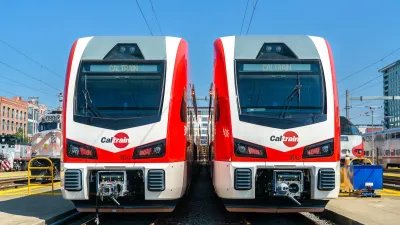Global leaders met last week in New Delhi to discuss climate change mitigation through sustainable development measures. For those on the front lines of climate change, the intransigence of the U.S. has sparked concern, reports Joanna Zelman.
Political and thought leaders from all over the world met in New Delhi, India from January 31 - February 2, 2013 to discuss the impacts of climate change on the environment and world economy. Discussions at the 2013 Delhi Sustainable Development Summit (DSDS) focused on adaptive and mitigating measures to curb greenhouse gas emissions, boost employment in green economies, promote sustainable and equitable development in a knowledge economy and forge a vision for the future of the planet.
Leaders from nations most impacted by climate change, including Kiribati, the Seychelles, the Maldives and Canada spoke of the unique problems they face: coastal erosion, flooding, extreme weather patterns and the opening of new maritime routes in the Arctic. As Guyana's President Donald Ramotar voiced the "disproportionate burden" developing countries carry when it comes to climate change, most participants of the TERI-India-organized conference agreed that the United States should take a leadership role.
The World is Flat author Thomas Friedman and former Florida Governor Charlie Crist lamented the relative timidity of the U.S. in acknowledging climate change.
But not all was doom and gloom. TERI Director General R.K. Pachauri cited a cautionary Sustainable Europe Research Institute (SERI) paper [PDF], which compares material consumption and resource productivity in 19 Asian countries, representing more than 90% of GDP in Asia, over 20 years.
The paper, which looks at resource extraction, material trade, consumption, GDP, productivity and CO2 emissions concludes: "Asian countries need to alter current development trends and help avoid a situation of severe global resource scarcities and (potentially armed) conflicts about access to limited natural resources. Increasing resource productivity, erasing poverty in the developing countries and reducing resource use in the high‐consuming countries are key priorities in a joint Asian policy agenda towards 'Green Industries'."
According to the paper's policy conclusions, in order to successfully implement a joint agenda like the "Manila Declaration on Green Industry in Asia," which contains a Framework of Action for the transition to low-carbon economies, nations need to balance resource efficiency and consumption patterns, improve infrastructure and materials energy efficiency and transfer material affluence to poor nations in an ecologically sound way.
FULL STORY: Delhi Sustainable Development Summit 2013 Explores Global Climate Change Challenges

Alabama: Trump Terminates Settlements for Black Communities Harmed By Raw Sewage
Trump deemed the landmark civil rights agreement “illegal DEI and environmental justice policy.”

Planetizen Federal Action Tracker
A weekly monitor of how Trump’s orders and actions are impacting planners and planning in America.

Why Should We Subsidize Public Transportation?
Many public transit agencies face financial stress due to rising costs, declining fare revenue, and declining subsidies. Transit advocates must provide a strong business case for increasing public transit funding.

Understanding Road Diets
An explainer from Momentum highlights the advantages of reducing vehicle lanes in favor of more bike, transit, and pedestrian infrastructure.

New California Law Regulates Warehouse Pollution
A new law tightens building and emissions regulations for large distribution warehouses to mitigate air pollution and traffic in surrounding communities.

Phoenix Announces Opening Date for Light Rail Extension
The South Central extension will connect South Phoenix to downtown and other major hubs starting on June 7.
Urban Design for Planners 1: Software Tools
This six-course series explores essential urban design concepts using open source software and equips planners with the tools they need to participate fully in the urban design process.
Planning for Universal Design
Learn the tools for implementing Universal Design in planning regulations.
Caltrans
Smith Gee Studio
Institute for Housing and Urban Development Studies (IHS)
City of Grandview
Harvard GSD Executive Education
Toledo-Lucas County Plan Commissions
Salt Lake City
NYU Wagner Graduate School of Public Service




























